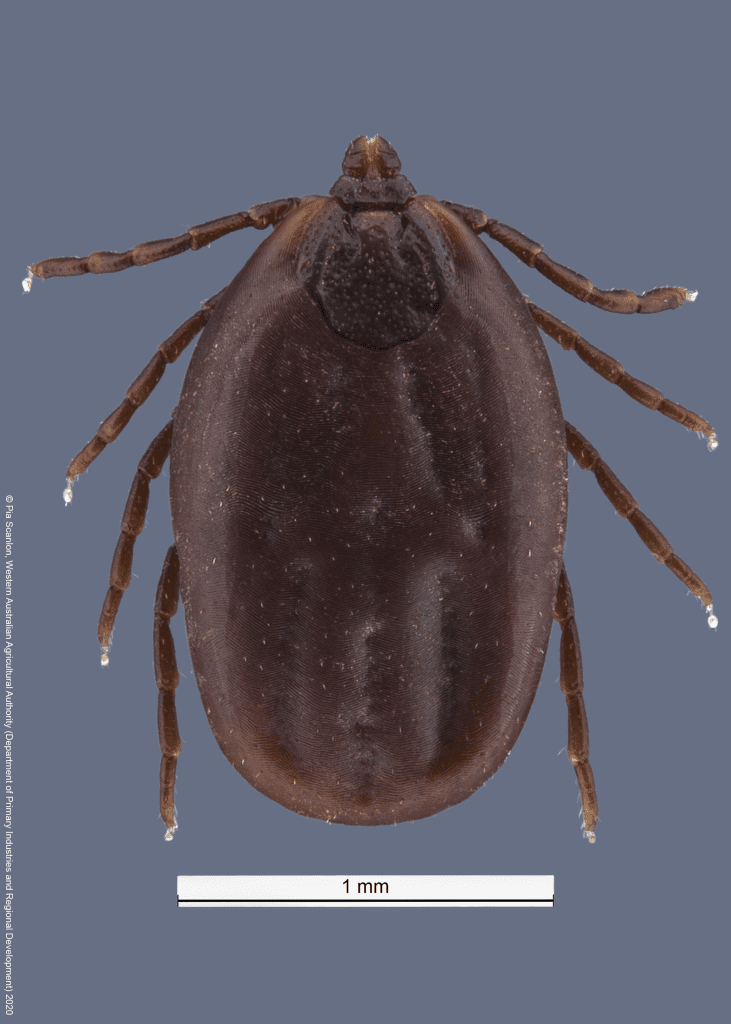A new detection of Canine Ehrlichiosis has been confirmed in Queensland, and the first in a dog that has not travelled outside the State, putting dog owners on notice to be alert for signs of the deadly dog disease.
The first case in Queensland was found in a dog which tested positive for the disease in July 2021, after travelling through Western Australia and the Northern Territory.

E. canis is transmitted primarily by the brown dog tick (Rhipicephalus sanguineus), which is widely distributed worldwide and is present in Australia. Image: DPIRD WA
Biosecurity Queensland announced a new case on social media this week involving a dog which has tested positive in North West Queensland.
In the latest case, the dog that has tested positive was reported to have not travelled outside the state, meaning the disease is likely to have found its way into the local Queensland tick population.
Dogs can become sick with ehrlichiosis (pronounced err-lick-ee-o-sis) if they are bitten by a brown dog tick infected with the bacteria Ehrlichia canis (E. canis). Without treatment, infections can kill dogs.
“Dogs that are sick with this disease get a fever, look very tired, do not want to eat and lose weight. Their eyes can also go blue and mucky, and they can get nose bleeds. It is important you use anti tick products on your dogs to stop the ticks from biting them and spreading the disease,” Biosecurity Queensland advised in a Facebook post.
“If your dog is sick, make sure you take it to a vet.”
Since 2020, dogs have been infected by ticks in northern Western Australia, the Northern Territory and northern South Australia.
Veterinarians in the NT last year said the fatal disease had already killed thousands of dogs in the Territory.
Biosecurity Queensland is advising canine owners that they can protect their dog and help to stop the spread by taking the following steps:
“Make sure your dog is on an effective tick prevention and control program including an external tick control that kills brown dog ticks on contact.
“If you are moving dogs from areas where E. canis is known or likely to be active, you must take steps to ensure you do not bring E. canis into Queensland or spread it within Queensland.”
“Always check dogs for ticks, and look for signs of the disease. If you think your dog has ehrlichiosis – speak to your vet, community Animal Management or Environmental Health Worker straight away.”
Anyone who suspects the presence of the disease in any dog in Queensland is advised they must report it to Biosecurity Queensland on 13 25 23 or contact the Emergency Animal Disease Watch Hotline on 1800 675 888.
